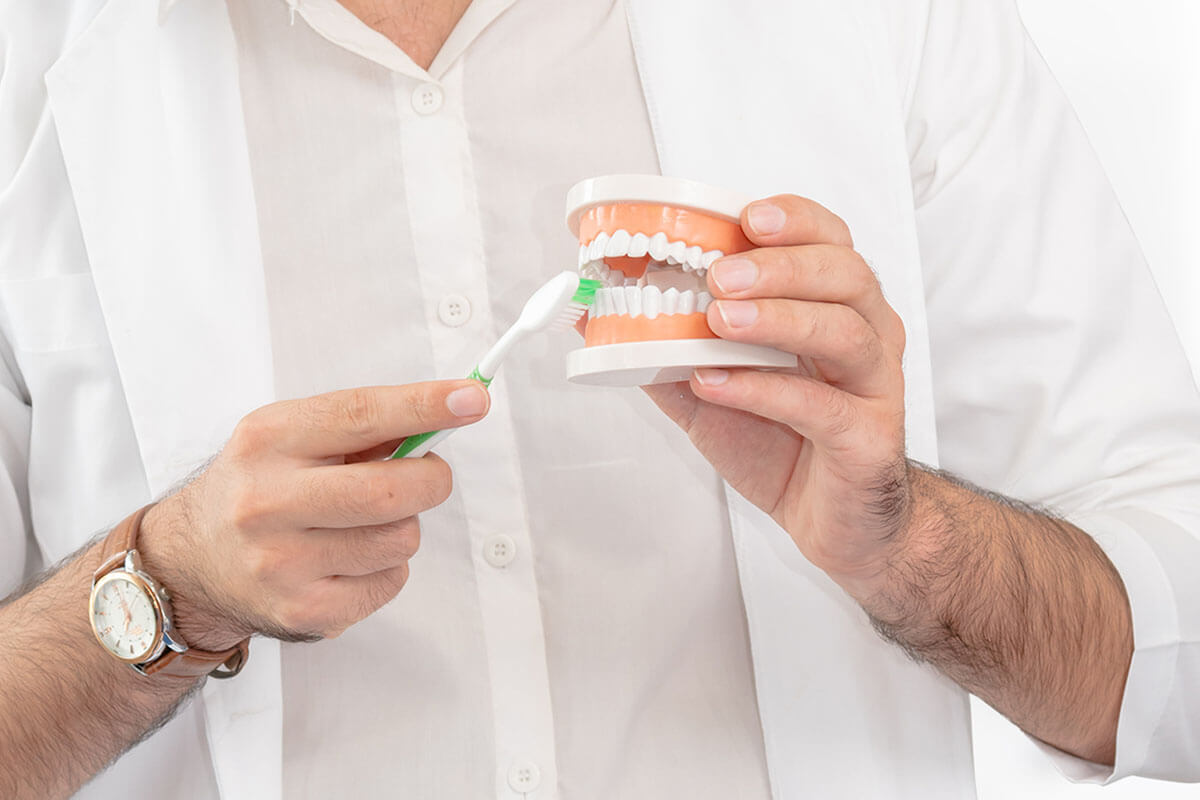Properly caring for your teeth is essential to good oral health, which is also connected to your overall well-being. Left untreated, oral health issues like gum disease or infection can lead to serious health problems. Practicing proper dental hygiene can help you and your children avoid cavities, keeping your mouth healthy for life. Staying educated about healthy oral hygiene habits is one way to make sure that you are keeping your teeth and gums as healthy as possible.
What Is Proper Dental Hygiene?
Oral health starts with clean teeth to avoid bacteria-causing plaque buildup. This can prevent gum disease and cavities. While many different choices and habits are part of your oral health, consider these four main principles of practicing proper dental hygiene:
- Brushing daily
- Flossing daily
- Regular dental exams
- Teeth cleaning from your dentist
- Healthy diet
Some basics for brushing include the following:
- Brush twice a day
- Spend about two minutes brushing – don’t rush!
- Brush right after eating, especially after acidic food
- Clean your tongue since it can harbor bacteria
- Use fluoride toothpaste and a soft-bristled toothbrush
When brushing, you should use gentle, circular motions. Make sure to brush the area where your teeth meet your gums, but not too hard as that can irritate the gums. Finally, you should replace your toothbrush every three months to make sure it is sanitary and in good shape.
Flossing helps you clean the spaces between your teeth and under the gum lines that brushing doesn’t always reach. When flossing, use the right amount of floss (about 18 inches). Grip it tightly between your thumb and forefinger and gently guide the floss between your teeth instead of “snapping” it into place. Make a “c” shape by curving it against your tooth and then pulling it up and down to clean the tooth. Ensure you unwind a little clean floss as you move to each tooth.
A healthy diet can also keep your smile in good shape. Highly acidic foods can wear away enamel, while a diet high in sugar can cause plaque buildup. Drinking enough water is good for both your overall health and your oral health, as it washes away bacteria. Oral health experts agree that diets high in fruits and vegetables promote proper dental hygiene.
The Importance of Practicing Proper Dental Hygiene
Practicing proper dental hygiene can keep you from developing oral health issues like cavities or gum disease. Additionally, regular visits to your dentist can help you treat problems early on. Although yearly dentist visits are the minimum recommendation for most adults, your dentist might recommend more frequent visits. As you get older, you are at a higher risk for gingivitis and tooth decay, so more frequent visits can ensure that your smile stays healthy. Contact your dentist right away if you are experiencing tooth pain, swollen or bleeding gums, loose teeth, or persistent bad breath. Your dentist can catch problems that you might not even know are there, like tooth decay or gum disease.
Contact Columbia Smiles
Though practicing proper dental hygiene at home is an important part of keeping your mouth healthy, regular dental exams can prevent serious problems. Impacted wisdom teeth, tooth decay, or gum disease can be hard to spot without a trained eye or the help of x-rays. Instead of leaving your oral health up to the power of your untrained eye, recognize the importance of practicing proper dental hygiene and go to a dentist.
Our dentists and hygienists at Columbia Smiles are experienced in preventative dental care as well as a variety of dental services. We’re committed to your comfort and health. When you’re ready to make an appointment, reach out to Columbia Smiles at 410.690.4855.







